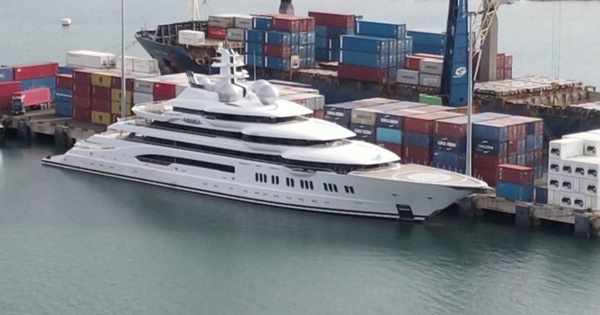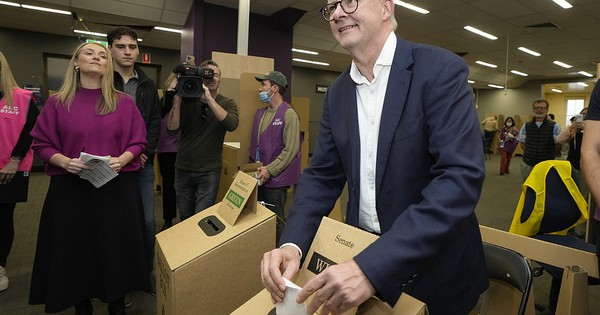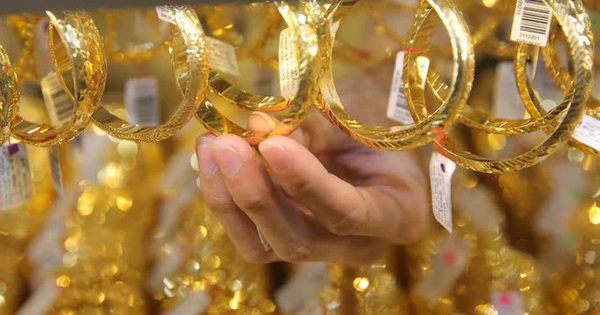4 ways Russia builds an ‘economic fortress’ against sanctions
Over the past few weeks, Putin has spent considerable time reassuring the public that sanctions are hurting the West itself more than Russia.
Russian President Vladimir Putin is preparing his country for a long road of adaptation. “The West has no intention of withdrawing from policies that put economic pressure on Russia,” he told Russian aviation leaders recently. Therefore, the Russian economy needs “long-term planning based on internal opportunities”.
Putin’s policy of self-reliance is predictable. Since Russia annexed Crimea in 2014, the country has been preparing to respond to increased Western sanctions. That strategy was dubbed “Fortress Russia”.
However, the scale of the economic “counterattack” waged by the West since the Ukraine crisis began on February 24, along with a growing wave of companies severing business with Russia as a precaution. reputational risk or future sanctions is a real shock.
“No one could have predicted that the West would be able to come up with such sanctions,” Russian Foreign Minister Sergey Lavrov acknowledged in March, referring to Russia’s freezing of half of its $600 billion bill. foreign exchange reserves. Russia has said it will challenge sanctions over its foreign exchange reserves in court. The country also threatened to sue if it defaulted due to an asset freeze.
With that, here are some of the ways that Russian companies, industry and officials are managing to make the Russian economy as normal as possible. CNN.
Redesigning the manufacturing supply chain

The assembly line of the LADA Izhevsk car factory, in Izhevsk, Russia February 22. Photo: Reuters
The iconic Russian domestic car brand Lada from the Soviet era relies heavily on imported parts. Avtovaz, the company that makes it, is owned by the French carmaker Renault. The problem is that the country’s auto companies use a single supplier system, according to Evgeny Eskov, editor-in-chief of the Russian auto magazine Auto Business Review.
On March 24, before the news that Renault was about to withdraw from the Russian market, Avtovaz revealed that the company is rapidly redesigning some models so that they are less dependent on imported components.
The company did not elaborate on these plans, but said they will gradually be finalized in the coming months. According to the company, the redesigned models will be simpler versions of current cars, without additional features like ABS (anti-lock braking system – one of the main safety systems). movement in the car).
Attracting domestic social media users
Until recently, Instagram was the top social network in Russia by monthly users, according to social media analytics company Brand Analytics. Vkontakte – the domestic version of Facebook in Russia, came in second.
After the Ukraine crisis erupted, Russia’s media regulator cut off access to Facebook and Instagram last month. Seizing the opportunity, Vkontakte finds ways to attract content creators.
The company offers a pre-commission policy for any monetized content until the end of April and offers free advertising to any content creator who moves from another platform to, or activates, their site. them since March 1. They also released tutorials on starting a business on Vkontakte.
Vkontakte’s own data shows that this worked. Their monthly users hit a record of over 100 million in March. According to Brand Analytics, Instagram lost almost half of its regular Russian-speaking users between February 24 and April 6.
Of course, many Instagram users in Russia are still active on the platform using a VPN. Olga Levakova, the owner of a business that sells high-end handmade Russian-style fabrics, said that after the initial “shock” and “panic” when Instagram was banned, she continued to use the platform through a VPN to continue her business. close to most foreign customers.
Levakova considered shutting down her Instagram page after it was flooded with anti-war comments and messages. Still, orders are still coming in, and she thinks it’s too early to tell if business will be affected.
Developing the domestic credit card market

The Mir system was introduced in 2015. Photo: Zuma Press
Russia has been bracing for financial isolation since some of its biggest banks were sanctioned following its annexation of Crimea. Thanks to this, the national payment card system and the bank card system, called “Mir”, have grown exponentially.
According to Russia’s central bank, more than 113 million Mir cards were issued in 2021, up from a total of 1.76 million at the end of 2016. Last year, about a quarter of card payments in Russia were made. by Mir card.
According to experts, this growth is partly caused by Russia. “They didn’t make it very appealing to ordinary Russians before the war. Instead, the government made it mandatory for public sector employees, pensioners and anyone receiving benefits to use a Mir card.” Maria Shagina, Senior Fellow at the Finnish Institute of International Affairs, said.
That means when Visa and Mastercard announced in early March that they would be shutting down transactions and operations in Russia, there was an alternative. But Mir has the limitation that it only works in Russia and a few other countries, mainly in the former Soviet bloc.
The lack of global reach also hinders Russia’s efforts to build an alternative to the SWIFT international payment system. Their own version, called SPFS, only had 400 units involved last year, compared with SWIFT’s 11,000. “The network effect is absent because foreign units don’t want to participate,” Shagina said.
Create more jobs in the public sector
According to Elina Ribakova, deputy chief economist at the Institute of International Finance in Washington, mass unemployment has yet to emerge in Russia. This is inherently one of the things the Kremlin is most concerned about, as it has the potential to fuel dissent.
“The more they restrain the protests, the more I understand that they are worried about unemployment,” she said. More than 15,000 people were arrested in Russia in the early weeks of the conflict for participating in anti-war protests.
The city of Moscow is trying to solve the problem of potential unemployment with a program to retrain and hire people who used to work at Western companies that have ceased to exist. Moscow Mayor Sergey Sobyanin estimates up to 200,000 jobs are at risk.
His solution was to give these workers something “useful” to do. Some suggested public administration positions include managing civil status records, working in one of the city’s parks or at the recently started temporary medical centers. The city government set aside $41 million to create these jobs and retrain workers.
For Russians who built careers at McKinsey or Goldman Sachs before the crisis, this will be an abrupt change. But Ribakova says it won’t be that bad. She believes most of that management-level workforce will leave Russia.
So far, Russia has managed to fend off initial sanctions with its financial system not collapsing. That is largely thanks to the fact that the central bank immediately raised interest rates to 20%, before lowering them to 17%, and imposed strict capital controls.
But this does not mean that Russia is past its most challenging period. According to the IMF, the economy could shrink by 8.5% this year. The fallout could be even greater if Europe bans its oil imports. Inflation is at 17.5%, which even Putin admits is hurting people.
Another major risk, according to experts, is Russia’s reliance on imported products while many are under sanctions. Tackling this supply could be even more difficult than macro-managing for the Kremlin.
“I have a feeling that the Russian authorities will turn into alleys where monsters are hiding. And they don’t know exactly when that monster will attack,” Ribakova said.
Session An (according to CNN)
at Blogtuan.info – Source: vnexpress.net – Read the original article here



